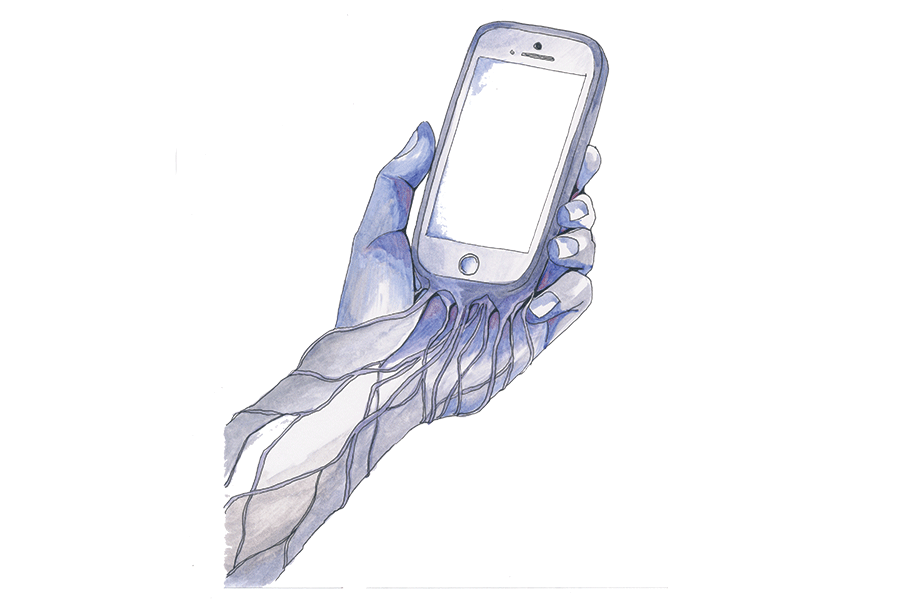Staff editorial: Excessive texting can do harm
While texting in moderation can offer many benefits, too much can negatively affect productivity and sleep
By Jason Chen
November 19, 2015
As technology becomes increasingly prominent, more students are depending on texting as their primary form of communication. While texting serves as a convenient and quick way to contact others, it also can be a distraction and hinders basic communication skills when used excessively.
According to a study published by the American Psychological Association, compulsive texting has detrimental effects on both academics and sleeping habits in teenagers. The temptation to text friends can act as a distraction that leads to procrastination. When students spend too much time on their phones after school, it can take longer to complete assignments, consequently cutting back on the time they get to sleep.
Aside from decreasing the number of hours students sleep every night, texting and being on a phone before bed impacts the quality of sleep as well. A 2014 study from Brigham and Women’s Hospital found reading off an electronic screen before going to bed makes it harder to fall asleep and causes increased drowsiness the next day. To get the most and best sleep possible, students who experience these problems should resist the urge to text and get in the habit of not using their phones before bed.
Texting has also proved to be a factor in students’ inability to communicate face-to-face. Once students graduate high school and begin pursuing careers, they will need to be prepared for face-to-face interactions such as interviewing for a job, talking to college professors and giving presentations. Discussions are an important aspect of the classroom and business world that cannot be carried out through a text message. Communicating in person also helps avoid miscommunication.
However, texting can be beneficial if used properly and in moderation. In emergencies or situations that require quick contact, cellphone use can be an essential form of communication. Texting can also be used as a tool for information, whether it be asking a friend for a homework assignment or receiving a reminder from a parent during passing period. In addition, texting is a good way to keep in contact with friends and hold conversation when you’re apart. As long as it does not become a distraction, texting can be an effective source of entertainment and socializing.
While it’s OK to text in free time, students should limit the time they spend texting when it interferes with sleep, productivity and communication skills. One solution for eliminating texting as a distraction is to put your phone far away or turn it off while working on homework after school. Without the temptation to text, assignments could be completed faster and with more focus. If you find that you still have trouble staying off your phone, try allowing a few minutes every half hour to check your phone before getting back to work. Before going to sleep, place your phone somewhere out of reach. Not only will this get you out of bed in the morning to turn off your alarm, but it will also keep you from texting friends late at night.
Even though texting is a necessary form of communication, there is a time and place where it is most suitable, and students must learn to distinguish this. When used at the appropriate time in moderation, texting can be an enjoyable, useful and beneficial form of communication. Students simply need to recognize the distractions that come with the method and how to avoid them.










